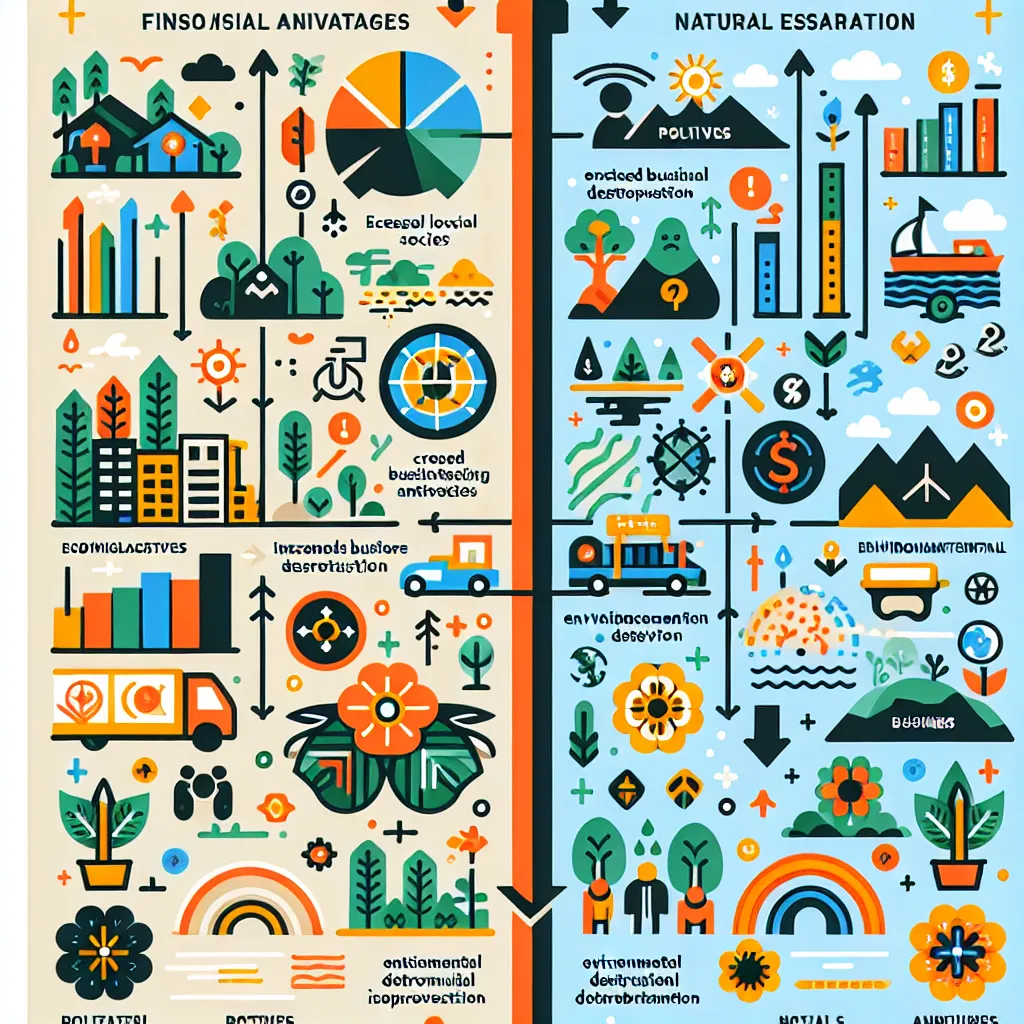The importance of biodiversity for global ecosystems is a crucial topic that frequently appears in IELTS Writing Task 2 essays. Based on past exam trends and the growing global focus on environmental issues, it’s highly likely that this theme will continue to be a popular subject in future IELTS tests. Let’s explore a relevant question and analyze sample essays across different band scores to help you prepare effectively for this topic.
Nội dung bài viết
 Biodiversity and Global Ecosystems
Biodiversity and Global Ecosystems
Analyzing the Question
Let’s consider the following IELTS Writing Task 2 question:
Many scientists believe that the Earth’s biodiversity is under threat, which could have serious consequences for the planet’s ecosystems. What are the main causes of this problem, and what solutions can you suggest?
This question is typical of IELTS Task 2 essays, requiring candidates to discuss causes and propose solutions to a complex global issue. It’s essential to:
- Identify the key components: biodiversity loss and its impact on ecosystems
- Discuss the main causes of biodiversity loss
- Propose realistic and effective solutions
- Structure your essay logically, addressing both aspects of the question
Now, let’s examine sample essays for different band scores, starting with a high-scoring response.
Sample Essay for Band 8-9
Band 8-9 Essay:
The Earth’s biodiversity, which encompasses the variety of life forms on our planet, is indeed facing unprecedented threats that could have far-reaching consequences for global ecosystems. This essay will explore the primary causes of this alarming trend and suggest potential solutions to mitigate the problem.
The main drivers of biodiversity loss are multifaceted and largely anthropogenic. Firstly, habitat destruction due to deforestation, urbanization, and agricultural expansion is decimating natural habitats at an alarming rate. The Amazon rainforest, for instance, lost an area equivalent to the size of Belgium in 2020 alone. Secondly, climate change is altering ecosystems faster than many species can adapt, leading to shifts in distribution patterns and, in some cases, extinction. The bleaching of coral reefs due to rising ocean temperatures is a stark example of this phenomenon. Thirdly, pollution, particularly from plastics and agricultural runoff, is contaminating habitats and directly harming wildlife. Finally, overexploitation of natural resources, including overfishing and poaching, is pushing many species to the brink of extinction.
To address these challenges, a multi-pronged approach is necessary. Firstly, governments must implement and enforce stricter regulations on deforestation, pollution, and resource extraction. This could include expanding protected areas and imposing hefty fines on violators. Secondly, investing in renewable energy and promoting sustainable agriculture can help mitigate climate change and reduce habitat destruction. Thirdly, education and awareness campaigns are crucial to foster a sense of environmental stewardship among the public. This could involve incorporating environmental education into school curricula and launching public information campaigns. Lastly, international cooperation is essential, as biodiversity loss is a global issue that transcends national borders. Initiatives like the Convention on Biological Diversity should be strengthened and given more teeth to ensure compliance.
In conclusion, while the threats to Earth’s biodiversity are severe, there are viable solutions that can help reverse this trend. By addressing the root causes through policy changes, education, and international cooperation, we can work towards preserving the rich tapestry of life on our planet for future generations.
(Word count: 329)
Analysis of Band 8-9 Essay:
This essay demonstrates excellent qualities that justify a high band score:
-
Task Achievement: The essay fully addresses all parts of the task, discussing both causes and solutions in depth.
-
Coherence and Cohesion: The essay is well-organized with clear paragraphing and effective use of cohesive devices. Each paragraph has a clear central topic.
-
Lexical Resource: The vocabulary used is sophisticated and precise (e.g., “anthropogenic,” “decimating,” “mitigation”). There’s a good range of less common words and phrases used appropriately.
-
Grammatical Range and Accuracy: The essay uses a wide range of complex structures accurately. There’s a good mix of simple and complex sentences, with no noticeable errors.
-
Specific Examples: The essay provides concrete examples to support its points, such as the Amazon deforestation statistic and the mention of coral reef bleaching.
-
Critical Thinking: The essay demonstrates a nuanced understanding of the issue, acknowledging its complexity and proposing multi-faceted solutions.
Sample Essay for Band 6-7
Band 6-7 Essay:
Many scientists are worried about the Earth’s biodiversity being in danger, which could be bad for the planet’s ecosystems. This essay will talk about the main reasons for this problem and some ways to fix it.
There are several causes of biodiversity loss. One big reason is that humans are destroying natural habitats. When we cut down forests or build cities, many animals and plants lose their homes. Another cause is pollution. Things like plastic in the oceans and chemicals from factories harm animals and plants. Climate change is also a big problem because it makes some places too hot or too dry for certain species to live. Lastly, some people hunt animals too much or catch too many fish, which can make some species disappear.
To solve these problems, we need to take several steps. First, governments should make stronger laws to protect nature. They could create more national parks and punish people who harm the environment. Second, we need to educate people about why biodiversity is important. If people understand the problem, they might be more careful about how they treat nature. Third, we should use more renewable energy like solar and wind power to help stop climate change. Finally, countries need to work together because this is a global problem. They could sign agreements to protect endangered species and share ideas on how to preserve nature.
In conclusion, while there are many threats to Earth’s biodiversity, there are also ways to help. If we all work together to protect habitats, reduce pollution, and educate others, we can make a difference. It’s important to act now to save the variety of life on our planet.
(Word count: 287)
Analysis of Band 6-7 Essay:
This essay demonstrates good qualities that place it in the Band 6-7 range:
-
Task Achievement: The essay addresses both parts of the task, discussing causes and solutions. However, the development of ideas is less thorough than in the Band 8-9 essay.
-
Coherence and Cohesion: The essay has a clear structure with introduction, body paragraphs, and conclusion. Paragraphing is logical, but the use of cohesive devices is less sophisticated.
-
Lexical Resource: The vocabulary is generally appropriate, but less varied and precise compared to the Band 8-9 essay. There are some good attempts at less common vocabulary (e.g., “renewable energy,” “endangered species”).
-
Grammatical Range and Accuracy: The essay uses a mix of simple and complex sentences, but with less variety than the higher band essay. There are no major errors, but the structures are less complex.
-
Specific Examples: The essay provides some examples, but they are more general and less detailed than in the Band 8-9 essay.
-
Critical Thinking: The essay shows a good understanding of the issue, but the analysis is less nuanced and the solutions less detailed than in the higher band essay.
Key Vocabulary to Remember
-
Biodiversity (noun) – /ˌbaɪəʊdaɪˈvɜːsəti/ – the variety of plant and animal life in the world or in a particular habitat
-
Ecosystem (noun) – /ˈiːkəʊˌsɪstəm/ – a biological community of interacting organisms and their physical environment
-
Anthropogenic (adjective) – /ˌænθrəpəˈdʒenɪk/ – originating in human activity
-
Habitat destruction (noun phrase) – /ˈhæbɪtæt dɪˈstrʌkʃən/ – the process by which natural habitat is damaged or destroyed to such an extent that it no longer supports the species present
-
Climate change (noun phrase) – /ˈklaɪmət tʃeɪndʒ/ – long-term shifts in global weather patterns and average temperatures
-
Overexploitation (noun) – /ˌəʊvərˌeksplɔɪˈteɪʃən/ – excessive use of a resource
-
Mitigation (noun) – /ˌmɪtɪˈɡeɪʃən/ – the action of reducing the severity, seriousness, or painfulness of something
-
Stewardship (noun) – /ˈstjuːədʃɪp/ – the job of supervising or taking care of something, such as an organization or property
-
Sustainable (adjective) – /səˈsteɪnəbl/ – able to be maintained at a certain rate or level
-
Biodiversity hotspot (noun phrase) – /ˌbaɪəʊdaɪˈvɜːsəti ˈhɒtspɒt/ – a biogeographic region with significant levels of biodiversity that is under threat from humans
Conclusion
The importance of biodiversity for global ecosystems is a critical topic that is likely to remain relevant in IELTS Writing Task 2 essays. By understanding the key issues, practicing with sample essays, and expanding your vocabulary on this topic, you can improve your ability to write compelling essays on biodiversity and related environmental themes.
For further practice, consider writing essays on these related topics:
- The impact of urban development on local biodiversity
- The role of international cooperation in protecting endangered species
- The economic value of preserving biodiversity
Remember, the key to improving your IELTS Writing score is consistent practice. Try writing your own essay on the question provided in this article and share it in the comments section below. This active practice will help you refine your skills and prepare effectively for the IELTS Writing Task 2.


